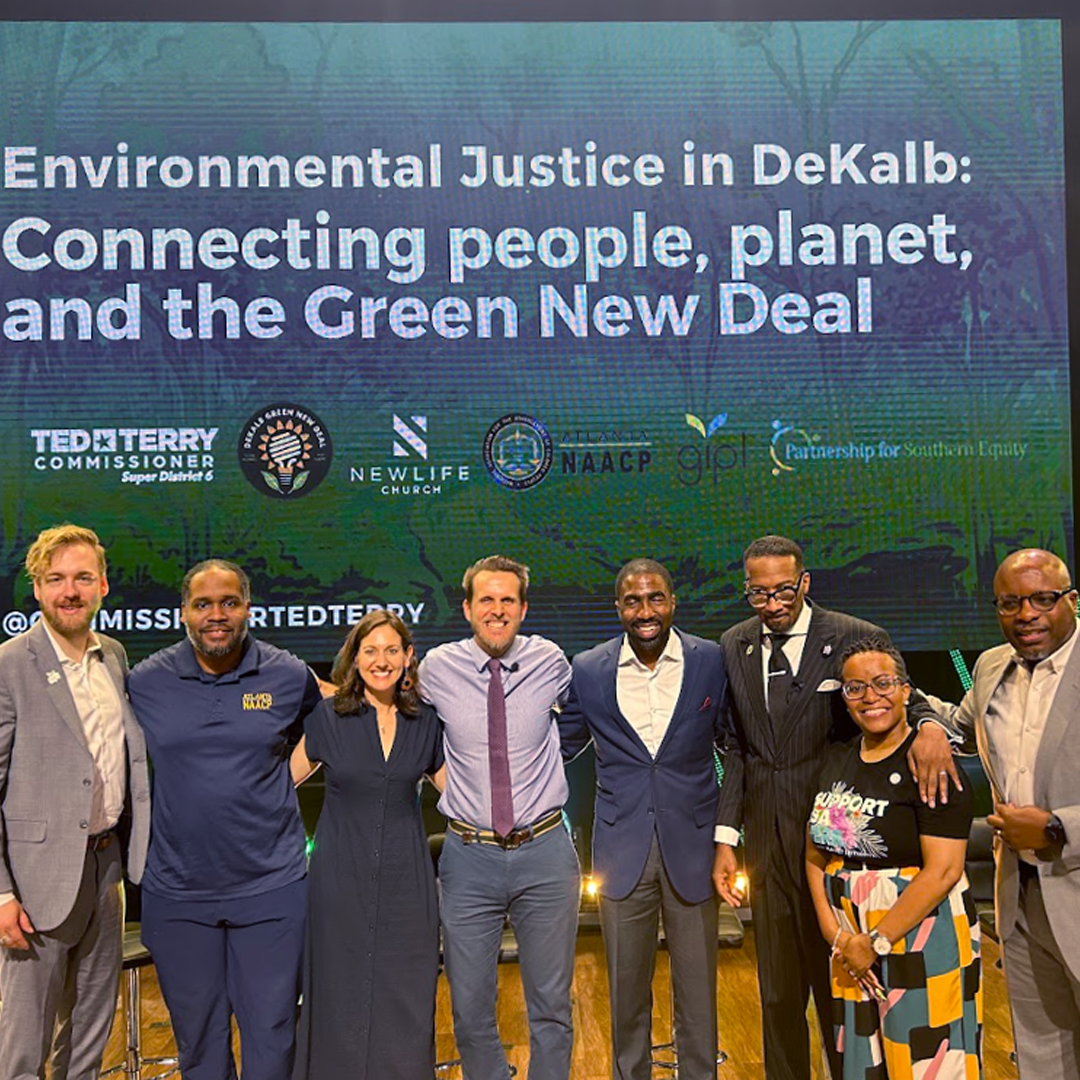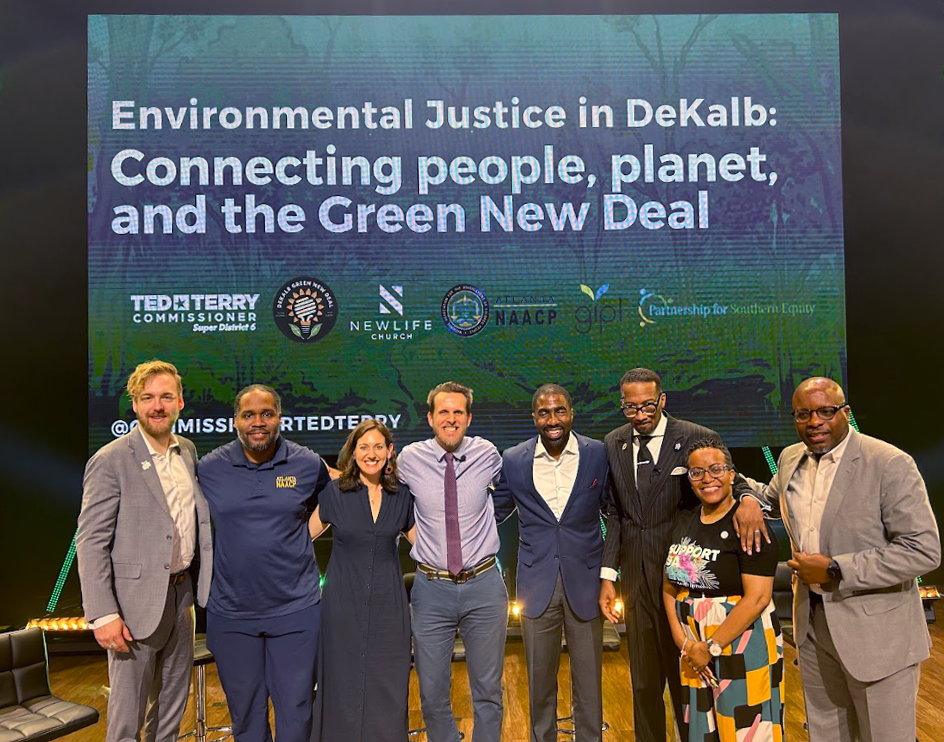On December 10, 2024 Commissioner Terry hosted a virtual Ask Me Anything Town Hall: Proposed Water and Sewer Rate Increase. DeKalb County COO Williams, CFO McNabb, Watershed Management Director Hayes, Consent Decree and Environmental Compliance Director Houser were also in attendance.
“Ask Me Anything Town Hall: Proposed Water and Sewer Rate Increase” Video Recording
You can also click here to watch a recording of this zoom.
Many questions were asked prior to the zoom call. Below are the questions and answers.
If you do not see your question or have further questions. Please feel free to email us at ted@dekalbcountyga.gov
The below answers were provided by Commissioner Ted Terry and the Super District 6 Commission Office
QUESTION: I like your water reform proposals. What is the next step? Would you vote on these reforms at the same time as you vote on increasing the water and sewer rates?
ANSWER: These discussions have been ongoing at the Board of Commissioners, Committee of the Whole, and PWI Committee meetings. These reforms are currently being discussed hand in hand with the Water and Sewer Rate Increase. Our hope is these reforms will be codified in the rate increase.
QUESTION: What can be offered for seniors. Many are on a fixed income which is not increasing 8% each year. How can they plan for this increase! This along with the sewer increase will add fuel to the fire and drive seniors out of their homes. Will the county implement water restrictions to help manage the amount or water being used? Many need to change habits before they receive outrageous bills. Advocacy council for Seniors?
ANSWER: I understand the concerns that many residents have shared about affordability and equity. That’s why I’m supporting a slate of targeted reforms to offer a safety net for low-income residents facing rate increases, cut through billing confusion, and instill real consequences for mismanagement. One of these reforms is fully funding the DeKalb C.A.R.E.S. Discount Program, which provides meaningful financial assistance to those who need it most. This ensures that rate increases don’t disproportionately burden our most vulnerable neighbors. This program is crucial because most abnormally high water bills in our system are the result of old pipes in old homes breaking. Plumbing repairs can range from the $100s to several thousand dollars, repairs that must be made before bill credits can be issued. Ensuring that customers like our fixed-income seniors can pay for these repairs is fundamental to an equitable system.
QUESTION: Why is the water rate increasing?
ANSWER: DeKalb County’s water and sewer system is decades old and in desperate need of repair. The Federal consent decree requires us to make these improvements
QUESTION: Please explain the pros and cons of the various rate amounts proposed (6%, 7.5% 8%) and why you think, if you do, that the 8% annual increase for 10 years is the best plan. Also, why the decision must be made in December 2024 vs. early in 2025.
ANSWER: The answer to this question is discussed during the Special Called PWI Committee Meeting on 1/30. You can watch this presentation discussion during the Special Called PWI Committee Meeting on 1/30 by clicking here.
The below answers were provided by the DeKalb County Watershed Department.
QUESTION: What is the actual work being done? For a while, there were SAK contractors on our street, and they pop back up every once in a while. What are they doing?? Lining pipes with something? Replacing pipes? There should be more communication about the work itself — the work being done.
ANSWER: There are many projects in progress all around the county on both the water and sewer and sewer systems. The SAK contractor is primarily lining existing sewer pipe to seal them and are making point repairs were lining is not possible.
QUESTION: I can understand that improvements will cost us all more money. I am curious about what water pipes would be changed and how the water system would be upgraded. Would these changes involve main line pipes, lines coming into homes, storage pipes, or where. I have just this year changed all the pipes in my home. Now what would I have to do to get the pipes coming into my home from the street upgraded? Can such a change be done at this time? Thank you for responding to my question.
ANSWER: Watershed has completed an assessment of the county water mains and transmission. This assessment has scored the age , condition, composition of the pipe, and demand of the service area. Pipe with lowest scores are replaced and or upsized 1st. The assessment only covered public lines. The private lines are not included in this assessment and are the responsibility of the homeowner to maintain.
QUESTION: What happen to the infrastructure bill , what did Georgia do with there money ? Why can’t the state lottery which takes in billions pay for something like: police, teachers, firemen, we should not have to pay state taxes, you guys need to find other ways to get revenue, toll coming in to Georgia, when will the home get a break ?
ANSWER: DeKalb is in line to get Infrastructure bill when it is made availible to the county. Watershed is investigating all potential sources of funds to minimize or prevent the need for rate increases.
QUESTION: Hi! Can we advocate for subsidized water drinking filters? None of your constituents actually drink the water from the tap (but instead use too much of their income to purchase bottled water). Additionally, the costs of our terrible infrastructure is increased by all the chlorine and “cleaning chemicals” they put in our water – can we advocate for them to put in less chlorine since no one is using it for drinking anyway? …
ANSWER: Chlorine and Fluoride are the chemicals that the regulatory authorities require to be added to drinking water. The county meets the chemical level requirements of the regulatory agencies.
QUESTION: Are contracts drafted for utility upgrades with incentives for completion ahead of timeline? If not, why?
ANSWER: Contract do not allow incentives for early completion. Watershed has multiple contracts in place to get this work completed. Contractors with poor or slow performance are not given addition work to incentives.
QUESTION: I have four manholes & sewer lines on my property that follow a stream bed. For almost 30 years, the entire flow of the stream at times flowed into the sewer and the County did nothing even when the infiltration was proven to them by plumbing dyes. Consultant after consultant, one County official after another, came out as if no one had been out previously, such a waste of resources. When they finally sent a firm to line the sewer and fix the holes, it took three attempts due to first, the incompetence of County crews and then the lining company itself; they finally hired a second firm and it’s done, but we’re fed up. My question is, shouldn’t the County undertake an independent financial audit (including cost, performance, and safety), as well as forecast the anticipated costs to finish the repairs before asking residents to pay truly ridiculous water & sewer fee increases? It’s all good to create new agencies to help the less advantaged, but that doesn’t help many of us, especially retired folks who don’t qualify and these added costs plus massive property tax increases drive us out of our homes. The County has to do better! Should this entire program be handed off to a highly competent independent (not a County insider) engineering management firm to administer? Have all possible State or Federal funds been chased?
ANSWER: The county continues to search for any available funds to assist with this cost. Independent consultant are assisting the county with assessments, cost projections and work performance.
QUESTION: What is the justification for this price increase? What needs to be done to stop this from happening?
ANSWER: 6000 miles of buried pipe with an average age of 30 years and an increasing population warrants maintenance and upsizing
QUESTION: I’m wondering how these proposals will effect the Dekalb residents that have had outrageous water bills of thousands of dollars?
ANSWER: Funds can be used to ensure more accurate metering billing and improved water delivery.
QUESTION: What were the rate increases for the past 25 years? what was the budget for the rate increases? What was collected for this rate increase? What was the amount collected used for? How much of this allocated money is left in reserve? What is the new peak capacity of Snapfinger Wastewater Treatment Plant in terms of MGD … million gallons per pay; How is Polebridge going to help the consent decree issues when it is in a different water basin? Why has no one said that it was the companies in DeKalb that created the Consent Decree issues but the private citizens are paying for it?
We have a lot of questions that elected officials, watershed, Georgia EPD, and the EPA are avoiding like the plague. Most citizens are in the dark because DeKalb County uses legal suppression and gaslighting as primary tools to suppress this deadly situation in South DeKalb County?
ANSWER: the new capacity of Snapfinger is 44 MDG average with 70MGD peek. The Pole Bridge Plant receives as much as 20 MGD of the county sewer flow to treat. Companies in DeKalb are regulated by the industrial pretreatment program. The bigger issue are the private sewer laterals of homes that are not maintained and allow millions of gallon of rain water into the county sewer system.
QUESTION: Why are the proposed water and sewer rates possibly being increased and we do not know the amount of lead in our water? I am also concerned about the amounts of sludge that come from the factories in Atlanta. Are these hazardous wastes going to other areas?
ANSWER: DeKalb water does not have lead in it. DeKalb water far exceeds the regulatory requirements. DeKalb does not allow industrial waste in the sewer system. It must be treated to DeKalb standards before it reaches the public sewer.




